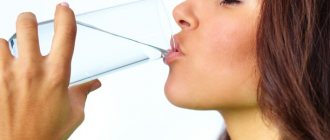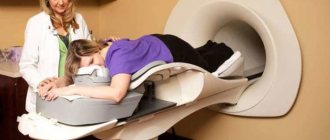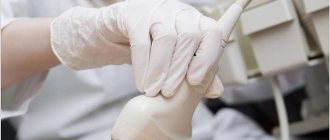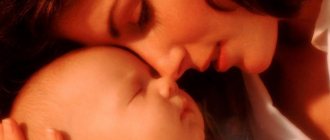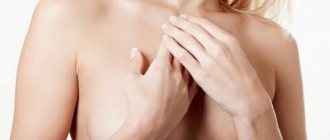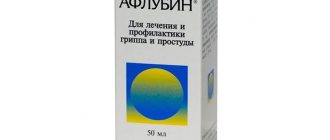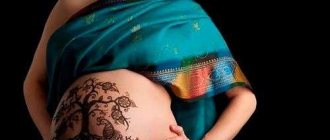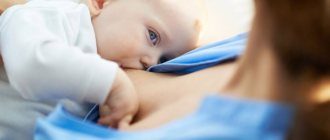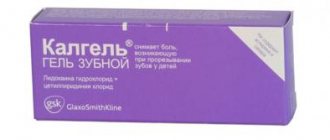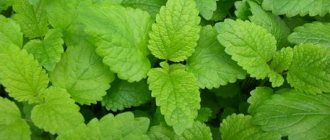What causes hair loss during breastfeeding?
Hair loss after pregnancy is one of the standard consequences of childbirth that many women experience. This natural and natural process does not arouse sympathy from the fair sex at all, so you should understand the reasons why this happens. Experts identify the following factors, the first of which is the most important:
- a decrease in the level of estrogen in the blood, which was significantly increased during pregnancy;
- chronic fatigue associated with child care;
- an inadequate course of nutrition associated with a certain diet that must be followed in cases where the feeding process occurs with breast milk;
- anesthesia used in case of problems during childbirth or a caesarean section;
- poor hair care due to too many problems associated with child care.
IMPORTANT! Often, hair loss is influenced by not one factor, but several, so even if one of them is corrected, the situation may not change at all. This is connected both with the application of some masks and with the resumption of proper nutrition or sleep.
A woman who is faced with such a problem needs to use several different measures in order to completely eliminate it and return herself to the state in which she was some time ago.
Causes of hair loss during lactation
The answer to the question of why hair falls out after childbirth cannot have a clear answer. There are many reasons for this, the main ones being:
- Breastfeeding requires a special diet for nursing mothers, which may differ significantly from the usual diet. Many children have an allergic reaction to cow's milk protein, gluten, glucose and other substances. Some mothers, if an allergy is detected, are forced to adhere to a very strict diet; their hair falls out significantly after childbirth; in this case, taking vitamins is necessary.
- Breast milk absorbs nutrients, vitamins and microelements from the mother's body. Therefore, she must eat well: vegetables and cereals must be included in the diet. There is a popular myth that a nursing mother should eat for two, this is wrong, quality is important, not quantity. If you eat for two, you can gain excess weight, thereby bringing additional stress to your body.
- Insufficient hair care due to a busy mother can also lead to severe hair loss, which needs to be stopped with the help of special products.
Hormonal changes
During the months of pregnancy and after childbirth, hormonal changes occur in the body. Hormones are raging, and this manifests itself not only internally, but also externally. Weakened immunity and mood swings do not please not only the new mother, but also her relatives. During this period, the help and support of your husband is very important. In case of severe failure, it would be useful to contact an endocrinologist.
Avitaminosis
Skin rashes, pigment spots, brittle nails, weakness - all these are companions of vitamin deficiency. This condition is typical for any person in the spring. In this case, taking vitamins is attributed. There are special vitamins for pregnant women, which can be continued after the birth of the child. However, vitamins must be chosen correctly so that there is no allergic reaction to them (how to do this is written here).
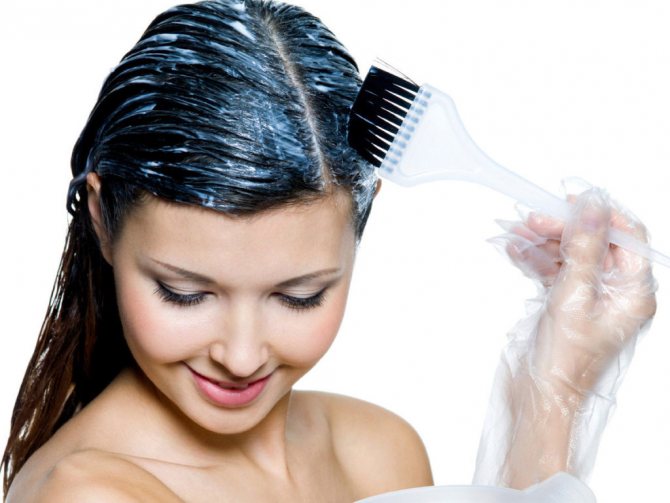
Nervous exhaustion
Postpartum depression can strike at any time after childbirth. The baby constantly needs a mother in the first months and years. In addition, all household responsibilities also fall on her fragile shoulders. Nights without sleep, Groundhog Day, worries and frustrations - such an absolute change in the usual rhythm of life cannot but affect the psychological state of a woman. It is very important to allow yourself little joys - weak evening tea with lemon balm, calm, slow walks, a bath with aromatic foam. Such moments give a huge charge of positivity. And for a joyful mother, it is easier and more fun to carry out tasks that are repeated every day.
What to do?
What to do if your hair falls out a lot while breastfeeding? It should be remembered that hair in its normal state should fall out. Often the rate of loss of old or damaged hair per day is 100 pieces. If their number exceeds this figure, and sometimes reaches 300-500, you need to sound the alarm.
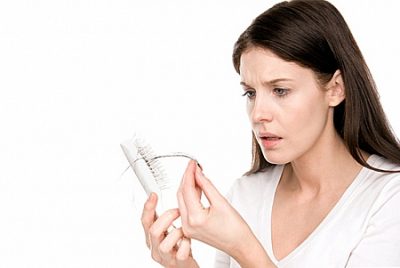
It will take a long time to wait until the hair stops falling out and its condition returns to normal. This is due to the fact that only after the child turns one year old can some responsibility and burden be relieved from the mother.
But in certain cases this happens after a longer period of time. Therefore, it is very important to take effective measures to eliminate hair loss during gw.
When treating a problem, it is necessary not only to take medications, but also to provide proper care, get rid of stressful situations, and eat rationally.
All this can be done while the baby is sleeping. If you pay attention to following all the tips, it will be possible to cure hair loss during breastfeeding in a fairly short period of time, rather than waiting for many months or years until the situation normalizes.
Causes of hair thinning after childbirth
The main causes of hair loss during breastfeeding are:
- constant fatigue. The first few months after the birth of a child, the mother experiences chronic lack of sleep; the baby is often capricious and wakes up at night. All this greatly affects the physical and psycho-emotional state, which undoubtedly affects the hair;
- stress. The birth of a child completely changes the usual way of life. We have to rebuild our daily life, which is not easy due to the mother’s physical and psychological fatigue;
- vitamin deficiency. During breastfeeding, a woman should minimize the risk of a child's allergic reactions to breast milk. Therefore, her nutrition is limited, it can be quite difficult to create a complete diet, which leads to a deficiency of nutrients;
- complicated childbirth. If the birth did not occur naturally, but through a cesarean section, then hair loss may be a consequence of anesthesia. It takes several months to restore hair;
- insufficient hair care. Due to lack of time after the birth of the baby, a nursing mother does not pay due attention to her hair. As a rule, all care consists of morning combing.
Most often, hair thinning during breastfeeding is due to a combination of reasons. If the norm is considered to be the loss of no more than one hundred hairs per day, then a nursing mother loses up to five hundred hairs. At this rate, by the time the child turns 1-1.5 years old and stops suckling, instead of a luxurious mop, a woman’s head will be left with pitiful tow.
Safe treatment
There are many methods for caring for your hair and restoring it to its normal state. Many of them can be used by nursing mothers. Additional assistance to the body can be provided primarily by compensating for the lack of vitamins.

In order to eliminate this, you can use not only proper nutrition, but also taking a vitamin-mineral complex, which can be purchased at any pharmacy.
It is very important to get regular good sleep, as well as avoid stressful and nervous situations. Read more about the effect of stress on hair loss in our article. It’s almost impossible to do, but it’s better to force yourself than to aggravate your health.
IMPORTANT! Proper nutrition is one of the safest ways to eliminate the problem of hair loss while breastfeeding. It should include lean meats, dairy products, fruits and vegetables to which the child does not have allergic reactions. If you eat well, you can even avoid taking vitamin supplements.
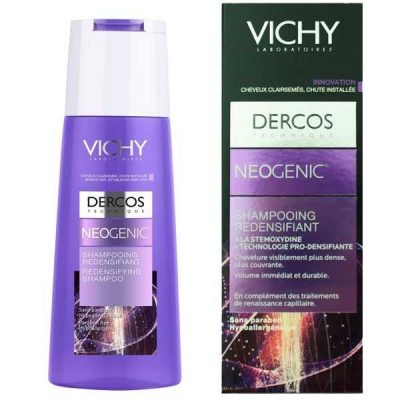
The problem with using them is that many of them are quite expensive. In the case of a small child in her arms, not every mother can afford this.
It is contraindicated for a mother who is breastfeeding her child to take any medications or medications that the pediatrician has not approved. In addition to the fact that this does not need to be done with pharmacy-certified drugs, there are also a huge number of products on the market that do not have any quality certificates.
Taking such drugs may not only not improve the condition of the hair, but also affect the health of the child. It is best not to dye your hair with any products while breastfeeding. It is also very important to use the right clips and combs that do not damage your hair and scalp.
Treatment
If you are affected by the problem of hair loss during lactation, then, first of all, you need to understand that the treatment of curls during this period has its own characteristics.
Many cosmetic, caring and medicinal products will have to be abandoned immediately, since the components they contain can negatively affect the health and development of the baby, and the use of a mesoscooter for hair loss is also contraindicated.
It is best to solve the problem together with a trichologist or dermatologist - an experienced specialist will select safe methods for restoring strands.
But you can do a lot on your own. It will be necessary to reconsider the features of your hair care, organize your diet correctly; masks made using natural ingredients are not prohibited from use.
POPULAR WITH READERS: How to treat hair loss in children.
Lotions and shampoos for hair loss
Lotions and shampoos that stop hair loss during lactation need to be selected those that contain the least amount of chemicals and more natural substances.
There are special lines of cosmetics designed for nursing mothers; such products have a neutral odor, practically do not penetrate into the general bloodstream and should not cause allergic reactions.
- SHAMPOO PLACENTA FORMULA. Stimulates the work of the bulbs, improves the condition of the epidermis, enhances regeneration processes. It has no contraindications and can be used both during pregnancy and the entire period of breastfeeding.

- Onion shampoo 911 with burdock oil. The herbal components of the shampoo are selected in such a way that when used, the hair is not only strengthened, but also moisturized, becomes softer and more manageable. From the same series, you can use onion shampoo with nettle extract or red pepper to strengthen hair.
- BIORGA CYSTINE B6 LOTION. Strengthens hair and ensures the growth of new curls; it is not prohibited during pregnancy and while breastfeeding. You need to use it for one and a half months with the condition of applying the lotion at least three times a week.

POPULAR WITH READERS: What are the medications for hair loss?
Vitamin complexes
External remedies will not help to completely solve the problem of hair loss during breastfeeding if the main cause is a deficiency of essential microelements, minerals and vitamins.
The easiest way to restore their balance in the body is by taking a course of vitamin and multivitamin complexes, but during breastfeeding you should use only safe products, these include:
- Iodomarin;
- Multi-tabs Perintal;
- Vitrum Prental Forte;
- Ferretab Comp.

Ampoule vitamins such as Vitamin A, B6, B2, nicotinic and ascorbic acid are recommended to be added to shampoos.
For one wash, it will be enough to pour a solution from one ampoule into a portion of shampoo.
When using vitamin complexes externally and systemically, a nursing mother needs to ensure that she and her baby do not develop allergies.

Masks against hair loss
Masks that restore the strength and structure of curls during lactation are recommended to be used at least once or twice a week.
You should choose those recipes that contain only natural ingredients. This composition is less likely to cause allergic reactions.
- Mask with egg, aloe juice and honey. It is necessary to squeeze three tablespoons of juice from aloe leaves, they are mixed with a tablespoon of melted honey and one egg yolk.

After thoroughly mixing, the mixture is applied to the hair; it needs to be kept for half an hour under an insulating cap. This mask is washed off with regular shampoo; during the last rinse, you can use a decoction of chamomile or nettle. A mixture of natural ingredients has a positive effect on strengthening hair follicles and makes hair shiny. - Cinnamon powder mask. Three large spoons of honey need to be melted in a warm water bath. The same amount of ground cinnamon is added to this amount of honey, both ingredients are mixed, and this should be done with a wooden spoon or spatula.

After mixing, the mass is diluted with two tablespoons of burdock oil (if you don’t have it, you can use olive oil or regular sunflower oil). The prepared gruel is rubbed into the scalp, and its remains are distributed throughout the strands. You need to walk with a mask under an insulating cap from 20 minutes to two to three hours. The mixture is washed off with shampoo, then the hair is rinsed with water acidified with lemon juice.
Proper nutrition
After giving birth, nursing mothers should pay great attention to their nutrition.
On the one hand, many products are prohibited at first, as they can provoke colic and allergic reactions in a newborn.
On the other hand, it is extremely dangerous to adhere to a strict diet, as this will lead to hair loss, tooth decay and a woman’s general poor health.
A lack of vitamins also has a negative impact on a child’s development. Therefore, a nursing mother should eat only natural, fresh food whenever possible.
Ideally, your daily diet should consist of:
- 30% from grain products;
- 30% from plant fruits;
- 20% from fish, meat, eggs;
- 15% from lactic acid products.
POPULAR WITH READERS: Effective recipes for onion hair masks against hair loss

The first days after childbirth, there should not be too much fatty food on the table; it is advisable to eat porridge, drink tea with milk, eat crackers, and unsweetened cookies during this time.
Gradually, the mother should introduce new dishes, but this must be done while observing the baby’s reaction.
Vegetables and fruits are introduced once every three days, first a quarter or half of a fresh fruit is eaten, then this amount is increased.
Such a careful approach to the choice of dishes will help to understand how the newborn perceives new types of food and whether there are any allergies to them.
Some women, fearing harm to their baby, adhere to strict diets for a long time, completely limiting themselves in everything. This is dangerous for both the mother and the child, so there is no need to be afraid to gradually expand your diet.
Of course, you should not eat exotic dishes; you should also limit various smoked foods, pickled and salty foods, and sweets.

What folk remedies can be used during lactation?
Traditional methods of treating hair loss in a nursing mother are more than safe and quite effective. They can be used in combination with other treatment methods.
A mask using figs, which is poured with a glass of fresh boiled milk, has gained great popularity. If using dried fruits, the products should be poured with cold milk and brought to a boil. After the mixture has cooled, it must be evenly distributed over the entire length of the hair. After an hour, it can be washed off with warm water.
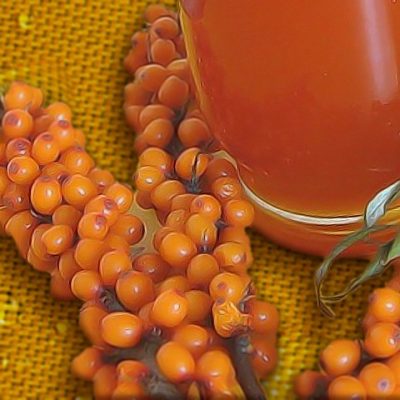
No less effective is a recipe in which sea buckthorn oil must be mixed with sprouted wheat oil. In this case, it is important to maintain a certain proportion of 8 to 2, respectively.
If your hair is quite oily, an effective remedy is a mask of egg yolk, honey and olive oil. It should be applied to the entire length of the hair and left for about 20 minutes. To do this, use chicken egg yolk, 1 tbsp. a spoonful of honey and a teaspoon of oil.
REFERENCE! Some women use various types of oils to restore lost hair, among which burdock is popular.
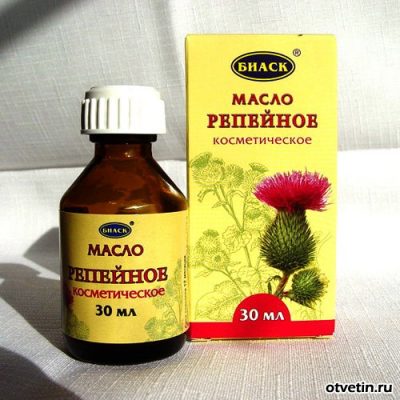
Before applying it to your head, the oil must be heated over low heat. After spreading on the hair, wrap your head with a warm cloth for 40 minutes.
You can also use a recipe that contains pepper tincture and burdock oil. To do this, these components are mixed in a ratio of 2 to 1.
After heating, the mixture should be distributed over the roots of the hair. It is best to rinse off one hour after application.
Read on our website about the use of masks against hair loss, which can be used during lactation. The composition includes the following ingredients: yeast, rye bread, kefir, chicken egg, aloe, castor and burdock oil, honey, oak bark. There is also a lot of useful information about herbal decoctions based on: nettle, hops, burdock.
Hair loss after childbirth while breastfeeding
Childbirth is a factor influencing hair condition
A woman’s appearance is an indicator of her mental and physical health. Hair reacts sensitively to any change in the body. Therefore, it is not surprising that during breastfeeding, the strands fade, become thinner and fall out profusely. A woman is recommended to focus her energy on treating follicles, strengthening and healing strands.
Nature of the problem
A woman’s well-being, the condition of her hair, nails, and skin largely depend on her hormonal levels, which change many times throughout her life. You don’t have to go far – just pay attention to your menstrual cycle. Each phase has its own balance of hormones.
A woman becomes pregnant, and her level of estrogen, necessary for bearing a fetus, rises sharply. But this hormone is also responsible for the condition of the hair, acting as a stimulator for the awakening of dormant hair follicles. Therefore, a pregnant woman’s hair becomes more voluminous than it was before the “interesting situation.”
Note! Childbirth is a kind of shock for the body, accompanied by the release of tarragon. This situation affects the fact that many follicles enter a state of inertia, which is why women experience hair loss during breastfeeding. The condition of the bulbs weakened by childbirth can be observed for six months or the entire lactation period.
After giving birth, hair began to fall out
When breastfeeding, the situation worsens for some, because a hormonal background is created that is most aimed at lactation. Hair loss during breastfeeding is even more active, because external factors are added to the biological factor.
Causes of hair loss
What to do if hair falls out after childbirth
When a baby appears in a family, it not only brings joy, but also creates a stressful situation for all its members, where the mother experiences the most difficulties. Unfavorable factors, layered on top of each other, lead to hair loss after childbirth while breastfeeding.
To understand why mommy’s locks come out (and very badly) after childbirth, it’s worth considering the main reasons that influence their poor condition. Among others, we can highlight the following:
- It is difficult for young mothers to immediately get used to a new responsibility, and this often leads to postpartum depression;
- due to the fact that all attention is focused on the newborn, the woman devotes less time to other family members, and this sometimes leads to quarrels - another stressful situation;
- the first months after childbirth are associated with fatigue and lack of sleep;
- A woman’s diet during lactation forces her to follow a diet so as not to harm the baby’s digestive system. Hence the lack of many vitamin and mineral elements (calcium deficiency is especially noticeable);
- stress and lack of time do not allow the mother to eat normally, which leads to hair loss while feeding the baby.
When mom has a free minute, she tends to devote this time to relaxation, and not to take care of her appearance. Such inattention to oneself also becomes the cause of strand disease. In this situation, a woman definitely needs to decide what to do when her hair falls out while breastfeeding.
We need to fix the situation
If your hair has become thin and falling out, what should you do?
Hair loss during lactation can be reduced if a woman begins to monitor her locks and takes care of her own health. True, many medications are contraindicated during lactation, so the main treatment should be aimed at external hair care:
- modern cosmetology produces many strengthening products that are harmless to a nursing mother (shampoos, balms, masks);
- Home remedies have a good effect: nourishing masks with natural ingredients;
- Don’t forget about herbs that help strengthen hair; they are useful for washing and rinsing your hair, and also included in masks;
- Massaging the scalp with salt or ground pepper will help invigorate the follicles;
- You can also do nourishing massages using vegetable oils;
- even a haircut (or at least cutting off the ends) will stop the hair from falling out.
The vitamin-mineral complex is excellent for strengthening hair after childbirth. But you shouldn’t take dietary supplements on your own - you need to consult not only a cosmetologist, but also a pediatrician. Vitamins for nursing mothers that go well with breast milk may well be suitable. The components included in the composition will also be useful for the strands.
Do not forget about the nutritional value of the mother. You cannot exclude natural sources of vitamins from your diet: fruits and vegetables.
They can be eaten fresh, added to salads, squeezed into juice, and many can even be baked.
Considering how infants react to their mother’s menu, the gifts of nature should be introduced into the diet gradually (Dr. Komarovsky advises), but they cannot be completely abandoned.
Important! It is necessary for a nursing mother to reconsider her daily routine, distributing time so that there is enough time for the child, and for household chores, and for rest. Measured routine will make life calmer. And the absence of stress and depression is an important factor in restoring your hair.
In an advanced situation, you may have to undergo serious treatment with mesotherapy or injections using various restorative drugs, which will be selected individually for each woman, taking into account the fact that she is breastfeeding.
Hair strengthening masks
If your hair falls out with a bulb, what should you do?
The most affordable remedy for a woman (and harmless for the baby) is a nourishing mask, which can be prepared and applied to strands in a few minutes. While natural hair vitamins exert their healing effect on the hair follicles, mother can attend to her current responsibilities at this time.
Hair strength in nourishing masks
Mustard
This mask can activate hair growth. You need 2 tbsp. dilute mustard powder with hot water to obtain a thick paste. Apply the composition to the skin and hair when it has cooled. After massaging your head for several minutes, wash off the mask by rinsing your hair with acidified water.
Honey mask
This product will help stop severe hair loss. Glycerin, burdock oil (all 1 tbsp) and chicken egg yolk are added to honey. Apply the mask not to wet strands, put on a cellophane cap and cover your head with a towel. After leaving for an hour, the curls are washed with strengthening shampoo and rinsed with an infusion of herbs (nettle, coltsfoot, chamomile).
Strengthening balm
This recipe will give excellent results for hair loss. Mix calendula flowers and crushed burdock root in a 1:2 combination, steam with hot water and boil for 10 minutes. The resulting liquid is rubbed into the scalp every other day. The remaining product can be kept in the refrigerator.
Healing "bath"
Taking 50 ml of one of the vegetable oils (from burdock or olives, castor or corn), mix with birch (1 tsp) sap, or you can squeeze 2-3 drops from lemon.
The ingredients are heated in a steam bath and the warm mixture is rubbed into the root area of the head (it is better to use a brush for this). Cover your head and leave the mask on for 2 hours.
After washing, it is recommended to rinse your hair with water and apple cider vinegar.
Nourishing and strengthening composition
Taking 1 tbsp. melted honey and juice squeezed out of aloe, add sesame or linseed oil (1 tsp) to the mixture. Keep the mask on your head for about 40 minutes, then wash the strands with shampoo. This product will make the follicles stronger and more active, and the hair more voluminous.
Honey and onion “fixer”
This composition will help strengthen the strands well and give them nutrition. Finely chop the onion and mix with honey (200 g). Let it brew for half an hour, then squeeze the mass well.
The resulting liquid should be rubbed into the scalp and distributed evenly throughout the strands. Wrap yourself in a terry towel and leave the mixture for 45 minutes.
The mask is quite effective, but it should be done no more than once a month.
Vitamins
If a nursing mother is experiencing hair loss, she should ask which vitamins sold at the pharmacy are suitable. The table below shows a list of recommended products that a woman can drink during breastfeeding.
Vitamins recommended for breastfeeding
DrugDescription
| "Elevit" | Excellent support for curls during the postpartum period. Various versions of the product are available: with folic acid, iron, magnesium, etc. |
| "Vitrum Beauty" | Recommended for heavy hair loss. Thanks to the magnesium included in the composition, it acts quickly and effectively |
| "Vitrum Prenatal forte" | Gives results at any stage of baldness. Helps promote growth and strengthen bulbs |
| "Calcium d3 Nycomed" | By replenishing the lack of calcium in the body, it accelerates hair growth. At the same time, it removes toxins from the body |
Note! The drugs described will not affect the development of the baby, but the choice of vitamins should still be agreed upon with a doctor, who will first examine the nursing mother, check her blood tests and make an individual prescription.
Vitamin complex for nursing
Cosmetical tools
When choosing shampoos and hair conditioners, a woman should carefully study the properties and composition of these products. To effectively improve the health of your hair, it is recommended to try the following drugs:
- A large series of products for hair loss is produced by the German company. The drugs contain nicotinamide and caffeine, which improve blood microcirculation and help invigorate and strengthen the bulbs;
- Revlon shampoos do not contain harmful chemicals and are recommended for women during the postpartum period. The drugs will allow you to quickly cope with even heavy hair loss;
- "Schwarzkopf" have long gained popularity in the cosmetology market. Their hair care products provide a quick strengthening effect thanks to the nicotinic acid included in the composition.
To further slow down hair loss, do not comb your hair immediately after washing your hair. It is also not recommended to collect wet curls in an elastic band and dry them with a hairdryer. This ruins the hairstyle.
Important! Effective elimination of the problem depends entirely on the woman herself, on her attentive attitude to her health and appearance. Once you let yourself go, baldness will become a pressing, protracted problem.
Reviews
Oksana, 24 years old: “I have been breastfeeding my son for 3 months and began to notice how ugly my hair became after giving birth. In addition, they fall out very abundantly. I had to contact my gynecologist in case it was a hormonal disorder.
I took tests, after which the doctor said that I had no health problems, my strands just didn’t have enough nutrition. I started taking Elevit with folic acid. I hope that soon my hair will be as beautiful as before the birth of the child.”
Inna, 18 years old: “I was always proud of my curls, but after the birth of my baby they began to grow a lot. I looked through several websites on the Internet about how to stop hair loss. I liked honey masks that can be made while breastfeeding. In addition, I bought a strengthening shampoo. So now I’m not afraid of a single hair that falls out - my locks are starting to come to life.”
Source: https://ameno.ru/alopeciya-oblysenie/vypadayut-volosy-rodov-grudnom-vskarmlivanii.html
How long will it take to achieve results?
It must be remembered that hair treatment is a long-term process that requires a lot of time. The first results can be seen in just a couple of weeks.
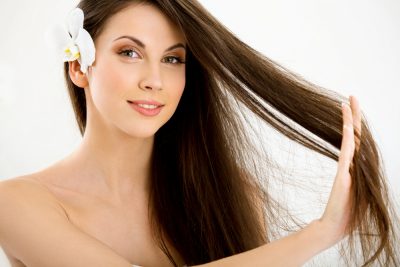
To completely prevent hair loss, it is worth using various methods over a long period of time. This also applies to the period during which hair will grow in places where there are bald patches, if there are any on the head.
Hair growth is a comparatively very slow process, so it is a very long-term process. You can expect a full recovery after a few months.
Reasons for concern
Unfortunately, hair loss during breastfeeding cannot always be stopped by taking vitamins and proper care. Sometimes situations may arise in which conventional recommendations are powerless and simple methods involving natural treatment do not help at all.
If, over a short period of time, hair falls out rapidly and evenly not only on the head, but also on the eyelashes and eyebrows, then this is a good reason to consult a doctor.
In order to identify severe baldness, you need to pay attention to the central parting on the head and the temporal areas. If the size of the parting has increased significantly over a short period of several weeks, then a diagnosis of hair loss is necessary. Most likely, in this case, there is not only a reaction of the body to the lactation period, but there are more serious reasons. It may be caused by stress, poisoning, or diseases of the autoimmune system.

